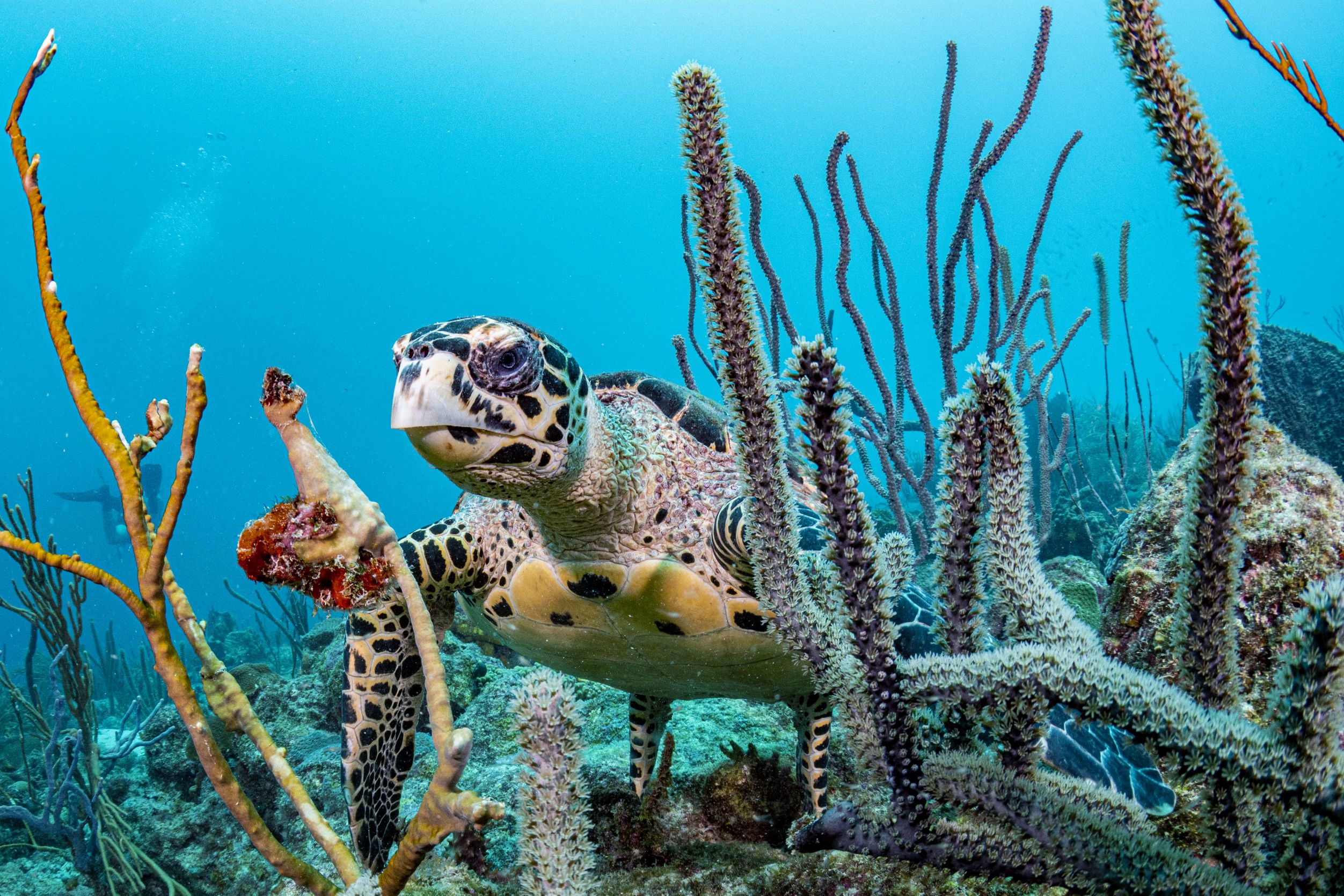Barbados Blue Bonds for ocean conservation
In September 2022, the Government of Barbados, TNC, and the Inter-American Development Bank (IDB) announced the completion of a USD 150 million debt conversion that enabled the country to reduce its debt burden and generate USD 50 million for marine conservation over 15 years. As part of the transaction agreement, Barbados established the Barbados Environmental Sustainability Fund (BESF), an independent conservation trust fund (CTF), to allocate conservation funding to in-country partners in support of its commitment to protect up to 30% of its marine space and complete a marine spatial plan (MSP).
Overview
Barbados is the easternmost island nation in the Caribbean. It sits on the limestone remains of ancient coral reefs that were formed and thrust upward by the movement of tectonic plates over millions of years. The country is surrounded by a vast marine space that is 430 times the size of its land area and teeming with life, including the critically endangered hawksbill and leatherback sea turtles, the endangered white spotted eagle ray, and critically endangered reef-forming corals like staghorn and elkhorn. Coral reefs are important for providing shelter, feeding grounds, recruitment sites, and breeding and nursery grounds for diverse marine organisms. Barbados’ reefs are also valued for their medicinal properties and provide the country’s white sand beaches and coastal protection. The reefs are negatively impacted by climate change, pollution, damage from coastal development, and other human activities.
Led by its Coastal Zone Management Unit (CZMU), within the Ministry of Environment and National Beautification, Green and Blue Economy, and with technical support from TNC, the Blue Bonds Project includes the development and implementation of the Barbados Marine Spatial Plan (BMSP). This comprehensive and participatory process aims to promote a balanced approach to ocean management that improves protections for biodiversity while fostering economic opportunities for local communities. A suite of actions to protect biodiversity and support the blue economy will be implemented, including protecting and restoring coral reefs, strengthening fisheries management, and protecting other critical marine habitats such as mangrove forests. The MSP includes ambitious goals of protecting and effectively managing up to 30% of Barbados’ entire ocean space (approx. 55,000 km²), 15% in high protection zones.
TNC’s Role
- Conservation financing assistance
- Technical assistance with planning tools and spatial analysis
- MSP process design and faciliation support
- Science and technical expertise
- Guidance on stakeholder engagement
- Local capacity building
- Training and learning exchanges
Project Partners
Lead Authority: Government of Barbados- Coastal Zone Management Unit (CZMU), Ministry of Environment and National Beautification, Green and Blue Economy
Facilitation: The Nature Conservancy
Other Partners: Barbados Environmental Sustainability Fund (BESF), University of the West Indies
Status
The Government of Barbados launched the BMSP in January 2023. A draft zoning design is on track to be completed in 2025.
Links
Coastal Zone Management Unit (CZMU) website
Ministry of Environment and National Beautification, Green and Blue Economy website
Barbados Marine Spatial Plan (BMSP) website
Barbados Environmental Sustainability Fund (BESF) website
Contact
Maxine Welsh M.Sc.
Director – Eastern Caribbean Program
The Nature Conservancy, St. George’s, Grenada
Email: maxine.welsh@tnc.org
TEEMING WITH LIFE A hawksbill sea turtle on a coral reef in Barbados. © Shane Gross

